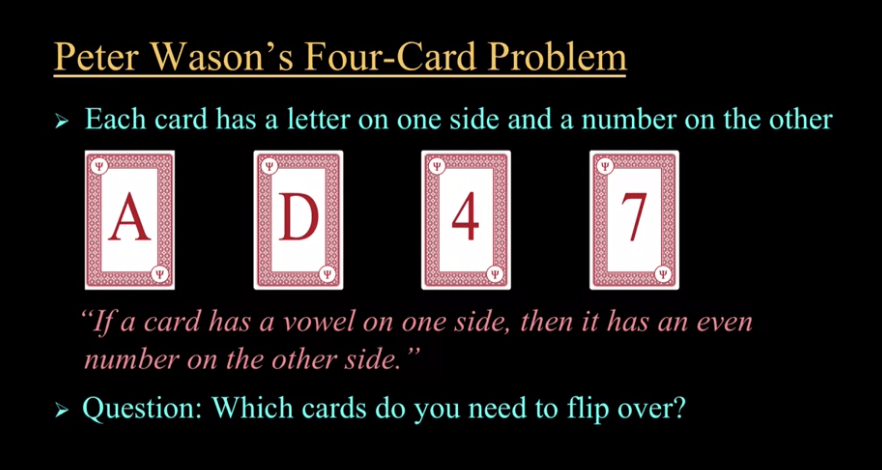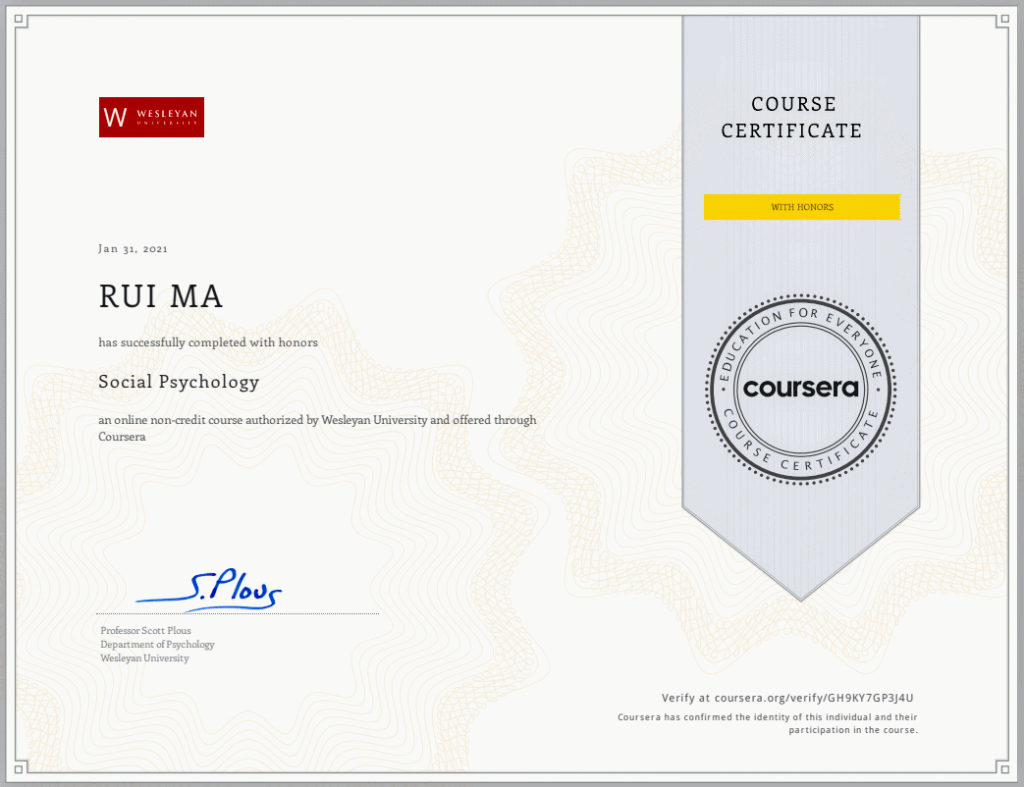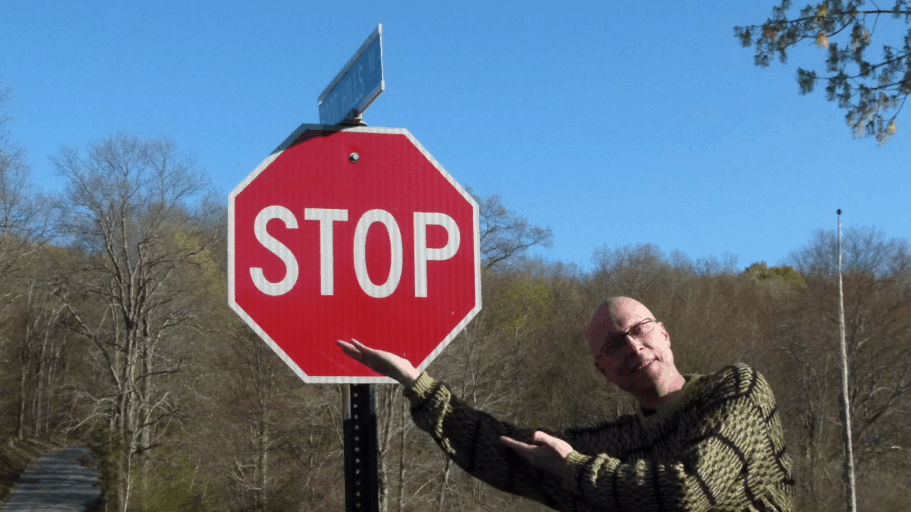The Study Group’s Social Psychology Experiment
Class Central Study Group members had varying degrees of success tackling Coursera’s Social Psychology.
When most of the Study Group had finished The Journey of Writing and Scripts in Egypt, we started thinking about the next course. This time, it was @suparn’s turn to suggest three courses and @dhawal set up a Google form for a secret ballot. Social Psychology (one of Coursera’s free certificate courses) was the winner even before @ruima had cast her vote. The course description sounded promising, with plenty of 5-star reviews.
Suparn very efficiently set up a document with course information and a study schedule. I vowed to keep up with the others after lagging behind in the last course because of a two-week vacation break.
The Course

I took my first online course in 2012, and have completed more than 100 since. As soon as I started Social Psychology, I realized it’s an older course. The heavy workload with a mix of videos, readings, peer-assessed assignments, exhortations to join the discussion forums, and the final exam were indicative of the university-subject style common in early Coursera courses.
More recent courses tend to be shorter, with weekly quizzes often replacing the final exam format. Peer assessments are less common in newer courses. Social Psychology is more like a university course than many I have done lately. Indeed, Professor Scott Plous mentions that ”The exam is intended to be roughly as difficult as an average college-level psychology exam in the United States.”
Class Central records show Coursera released the first session of Social Psychology in 2013, and some more recent material has been added.
The course overview mentioned “Our focus will be on surprising, entertaining, and intriguing research findings that are easy to apply in daily life.” It lived up to this promise, with some material appearing to be included because of unexpected or controversial conclusions. For instance, the color changing card trick below is used in the course to playfully illustrate how our expectations influence our perceptions. Many studies were discussed, alongside compulsory and optional resources such as websites, videos, and reading materials.
Some Stumbling Blocks
By the next bi-weekly meeting on 11 November, most of the Study Group had worked through the first week. Some had started on week two. We agreed that it was an interesting course and discussed the Snapshot quiz, a long quiz you take early in the course and whose results are used throughout the course to illustrate aspects of social psychology and some of the tricks our minds play on us. We also discussed whether or not we had joined the Social Psychology Network. Some participants thought the course promoted the Social Psychology Network (which is run by the instructor) a bit too much.
Professor Plous freely admitted in early videos that social psychology findings differ between cultures. As a global study group with members on four continents, we agreed, noting that many conclusions appeared to be biased towards a Western/American cultural point of view.

Two weeks later, several people had still not finished week two, which featured a time-consuming written assignment. Not only did learners have to write a real or fictitious resume, or a profile on the Social Psychology Network, we also had to explain how we constructed it using elements of social psychology. This assignment was a big stumbling block for several in the group. For learners wanting to take the course, I would recommend going straight to the assignment when you start the week, so you can read what it’s about and start thinking about your response while you watch the lecture videos.
I started off well, planning to read the readings and conscientiously scrutinize all the optional resources. Each week took hours! After enrolling in late October, I had only fully completed three weeks of the course before Christmas. Then other commitments took over and I didn’t get back to it until late January.
After resetting my Coursera deadlines, I had to make a decision. Should I continue as before and risk taking another two months to finish in between my work and family commitments? Or should I take the quick way and just complete the compulsory work? I was still keen to earn my free certificate. I finally decided to earn my certificate the easiest way, and not attempt the Honors assignment. After all, I can access all the course materials at any time by logging into Coursera. I ignored the optional items, watched the main videos, scanned the readings, and finished the last few assignments and the exam within two titanic weeks.

Others fared differently. @vishnu joined a few meetings but didn’t really get started on the course. After week one, @dhawal decided to audit the videos without attempting the assignments or the readings, then found himself urgently needing to do other things every time he visited the course. He eventually chose to cut loose and follow his preferred interests instead of spending time on Social Psychology. @suparn found some of the videos very interesting. He went through the whole course, planning to write the assignments afterwards, but ended up skipping them. @manoel decided that Social Psychology was not for him and threw in the towel during week three. @heba plans to finish, after completing another course with a friend and writing a conference paper. @ruima got stuck on the final assignment, but eventually finished the course.
A Failed Experiment?
After the success of Excel Fundamentals for Data Analysis and The Truth About Cats and Dogs, as a group, we weren’t quite as engaged with The Journey of Writing and Scripts in Egypt. During Social Psychology, the group’s learning aspirations fell in a heap, although we enjoyed getting to know each other better during the bi-weekly Zoom catch-ups. As @manoel said, maybe the honeymoon period was over and the novelty of something new had worn off. Maybe it was simply a subject that some Study Group members did not find interesting, or the heavy workload including written, peer-assessed essays, was a stumbling block. Or a combination of factors.
By late January, everyone had either abandoned or finished/almost finished with Social Psychology and we turned with relief to the Study Group’s next course.






